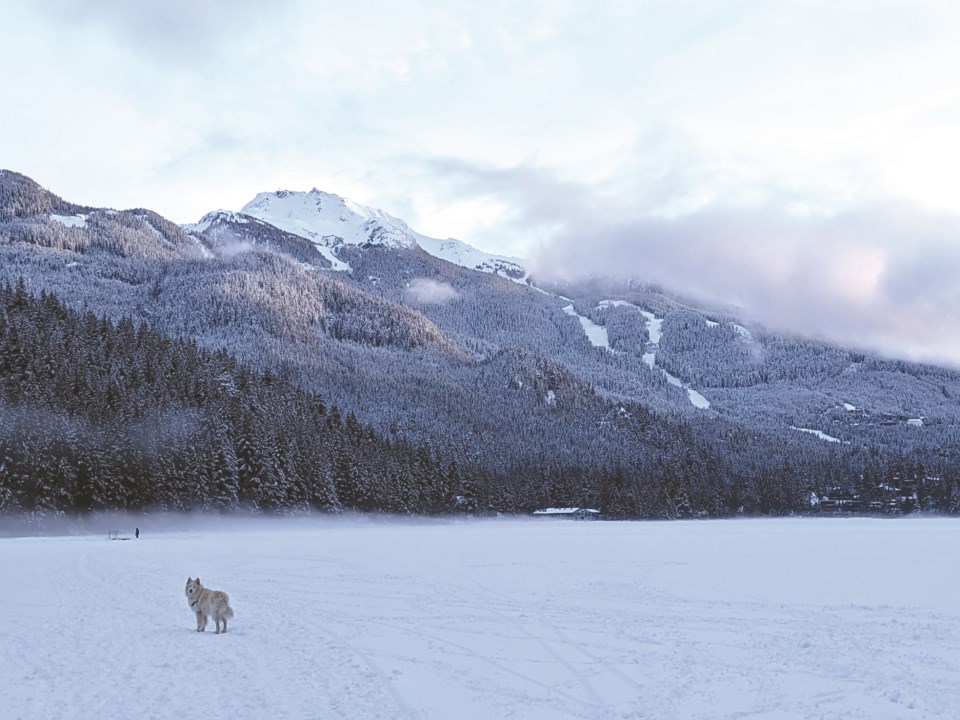When the recession hit in 2008, I didn’t really notice much change in my day-to-day life in Whistler. The construction and development leading up to the 2010 Olympics meant affordable housing was hard to find (nothing like now, but it was dismal for the time). People still came on vacation to Whistler, but we saw way fewer high-rolling American tourists making it rain with their USD. But the biggest reason I think I barely felt the effects of the world’s most significant economic downturn since the Great Depression was that I barely had anything to my name. Just a closet full of skis, a couple of mountain bikes and a half-share in a rusty Ford Explorer. All a 20-something Whistler lifer could ever need.
Fourteen years later and thankfully I’ve managed to tick off a few adulting objectives, such as qualifying for a mortgage and owning a vehicle that’s not a ticking timebomb of mechanical disasters. But with all the talk of Canada heading into a recession this year, one has to wonder how much our humble ski-town lifestyle will be affected this time, if at all. I’m no economist, but I do read the news and I listen to the experts both in the greater Canadian economic context and our own outdoor industry niches. And as with most economic commentary, what we can expect is a bit of a mixed bag.
Tourism visits to destinations like Whistler don’t seem to be slowing down. Just ask the exhausted hospitality workers. While the still-rising interest rates and inflated prices of everything under the sun has many folks thinking twice about a ski vacation, many higher-income folks (at least high-income enough to fill up Whistler’s hotels) are weathering that particular economic storm just fine. Every local business seems to be still struggling for workers and workers are still struggling for housing, but somehow Whistler manages to limp through the busiest parts of the season. As Pique’s writers have often opined, being overbusy is a good problem to have for a tourism-driven resort town. Despite the housing horror stories such as those in Pique’s Jan. 19 cover story, “Wake-up Call,” the young workers continue to arrive every winter. Let’s hope they keep coming.
The outdoor gear industry experienced an unprecedented boom during the pandemic years with every type of recreational product selling like hotcakes. With supply now caught up to demand in most outdoor sectors, now many brands have the opposite problem: packed warehouses, with more new stock on the way. The bike industry is experiencing one of the most dramatic of these corrections, with prices dropping in both the new and used markets. So, if you held off buying a high-end bike over the last couple of years due to low inventory or avoiding the dreaded used market “COVID tax,” this year is probably the best time to get yourself a new (or new-to-you) ride. That’s if your 2023 economic reality allows for it, of course.
I’ve heard anecdotally that some snowmobilers were trying to offload the new sleds they ordered last spring, the inflated cost of gas and oil and the cost of financing a brand new $20,000 motorsport vehicle making riders run for the hills. Industry players like BRP assure their investors that global sales are still on the up and 2022 was yet another bumper year for the motorsports sector. But it will be interesting to see if what’s happening on the ground matches the fiscal reports in another 12 months.
When I look at the impacts on my own recreational habits, I’m definitely going to think twice before signing up for luxuries like a week at a heli-accessed ski-touring hut. I won’t be upgrading my sled but will instead put a bit of money aside for the inevitable repair bill in the fall. I might reconsider buying a bike park pass this year, but to be fair I say that every year before succumbing to the lift-accessed awesomeness. In the near future of summer 2023, I see more backcountry hiking and camping trips than cross-province biking road trips. While I don’t see myself having to sell off any of the toys that help make my seasons all the more rewarding, new purchases are currently on hold for the year.
If you’re lucky enough to have secure housing and a fairly compensated job in Whistler, the hardest part is probably behind you. But there’s no shame in having a lean year to help make the next couple of years after that less stressful. Best of luck to you all in the recession ahead.
Vince Shuley is buckling up. For questions, comments or suggestions for The Outsider email [email protected] or Instagram @whis_vince




